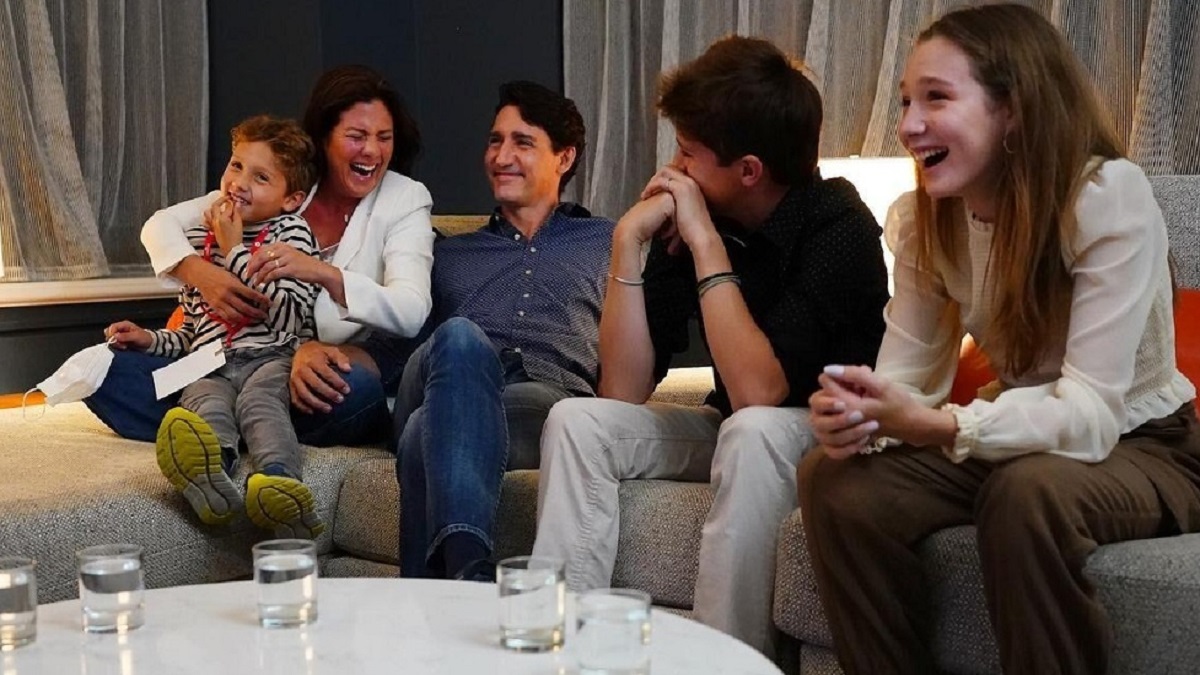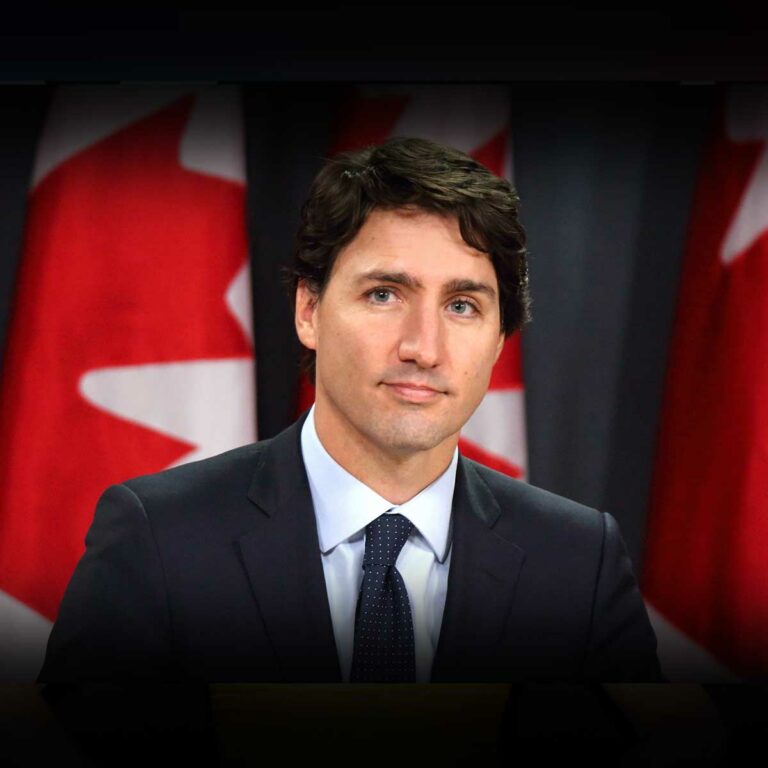When Justin Trudeau was elected as the Prime Minister of Canada, his age became a significant talking point in the political world. At just 43 years old, Trudeau marked a new era in Canadian leadership. His election brought a wave of enthusiasm and hope for the future of the nation. But how did his age impact his leadership style and the country's policies? Let's dive deep into this fascinating aspect of his political journey.
As one of the youngest prime ministers in Canadian history, Justin Trudeau's age has been both an asset and a challenge. His youthful energy and modern outlook have resonated with younger generations, making him a symbol of change. However, critics questioned whether his relative inexperience would hinder his ability to lead effectively.
This article will explore Justin Trudeau's age when he was elected, how it influenced his leadership, and what it means for the future of Canadian politics. We will also examine his biography, key milestones, and the impact of his policies. By the end, you'll have a comprehensive understanding of this pivotal moment in Canadian political history.
Read also:Who Is Elon Musks Wife In 2024 A Complete Guide To His Personal Life
Table of Contents
- Biography of Justin Trudeau
- Justin Trudeau Age When Elected
- Early Political Career
- Leadership Style and Impact
- Key Policies and Initiatives
- Criticisms and Challenges
- The Age Factor in Politics
- Comparison with Other World Leaders
- Legacy and Future Prospects
- Conclusion
Biography of Justin Trudeau
Early Life and Education
Justin Trudeau was born on December 25, 1971, in Ottawa, Ontario, Canada. He is the eldest son of the late Pierre Elliott Trudeau, who served as Canada's 15th Prime Minister. Growing up in a politically influential family, Justin was exposed to leadership and public service from a young age. He pursued his education at Collège Jean-de-Brébeuf and later graduated from McGill University with a Bachelor of Arts in Literature.
Professional Background
Before entering politics, Trudeau worked as a teacher and environmental activist. His passion for education and social justice laid the foundation for his future political career. He was deeply involved in community service and advocacy, which shaped his values and principles.
| Full Name | Justin Pierre James Trudeau |
|---|---|
| Date of Birth | December 25, 1971 |
| Place of Birth | Ottawa, Ontario, Canada |
| Education | McGill University, University of Montreal |
| Profession Before Politics | Teacher, Environmental Activist |
Justin Trudeau Age When Elected
On October 19, 2015, Justin Trudeau was elected as the 23rd Prime Minister of Canada at the age of 43. This made him one of the youngest leaders in Canadian history. His election victory was a significant moment, as he led the Liberal Party to a majority government after nearly a decade of Conservative rule.
Why Age Matters
- Younger leaders often bring fresh perspectives and innovative ideas to governance.
- Trudeau's age resonated with younger voters who were seeking change and progress.
- His youthful energy was seen as a symbol of hope for the future of Canada.
Early Political Career
Trudeau's political career began in 2008 when he was elected as the Member of Parliament for Papineau, Quebec. Over the years, he gained recognition for his progressive policies and commitment to social justice. His rise to leadership within the Liberal Party was swift, and by 2013, he was chosen as the party's leader.
Leadership Style and Impact
As a leader, Justin Trudeau is known for his inclusive and progressive approach. His policies reflect a commitment to equality, environmental sustainability, and international cooperation. His leadership style emphasizes collaboration and dialogue, which has helped him build strong relationships both domestically and internationally.
Key Traits of Trudeau's Leadership
- Emphasis on diversity and inclusion.
- Focus on climate change and environmental protection.
- Commitment to gender equality and social justice.
Key Policies and Initiatives
During his tenure, Justin Trudeau has implemented several landmark policies that have shaped Canada's political landscape. Some of the most notable initiatives include:
Read also:Aagmaal Gives Understanding The Impact And Importance Of Generosity
Environmental Policies
- Introduction of a national carbon pricing plan to combat climate change.
- Investment in renewable energy and green infrastructure projects.
Social Reforms
- Legalization of cannabis for recreational use.
- Expansion of social programs to support vulnerable communities.
Criticisms and Challenges
While Trudeau's leadership has been praised for its progressive vision, it has not been without criticism. Some critics argue that his policies have been overly ambitious and lacking in practical implementation. Others have raised concerns about his handling of economic challenges and indigenous relations.
Common Criticisms
- Perceived lack of fiscal responsibility.
- Controversies surrounding indigenous land disputes.
- Challenges in balancing environmental goals with economic growth.
The Age Factor in Politics
The age of a political leader can play a significant role in shaping their leadership style and effectiveness. Younger leaders like Justin Trudeau often bring energy and innovation to governance, but they may also face challenges related to experience and credibility. Understanding the impact of age in politics is crucial for evaluating leadership potential.
Comparison with Other World Leaders
When compared to other world leaders, Justin Trudeau stands out for his youthful energy and progressive policies. Leaders such as Emmanuel Macron of France and Jacinda Ardern of New Zealand have also gained recognition for their youthful leadership. This trend reflects a growing demand for fresh perspectives in global politics.
Legacy and Future Prospects
As Justin Trudeau continues to lead Canada, his legacy will be defined by his ability to implement lasting change. His focus on inclusivity, sustainability, and social justice has set a new standard for leadership in the 21st century. The future of Canadian politics will likely be shaped by the principles and values he has championed.
Conclusion
In conclusion, Justin Trudeau's age when elected as Prime Minister of Canada was a defining aspect of his leadership. At 43 years old, he brought a youthful energy and progressive vision that resonated with many Canadians. His policies and initiatives have had a significant impact on the nation, and his legacy will continue to shape the future of Canadian politics.
We encourage you to share your thoughts and insights in the comments section below. If you enjoyed this article, consider exploring other content on our site for more in-depth analysis of global leaders and political trends. Together, let's continue the conversation about the future of leadership and governance.


